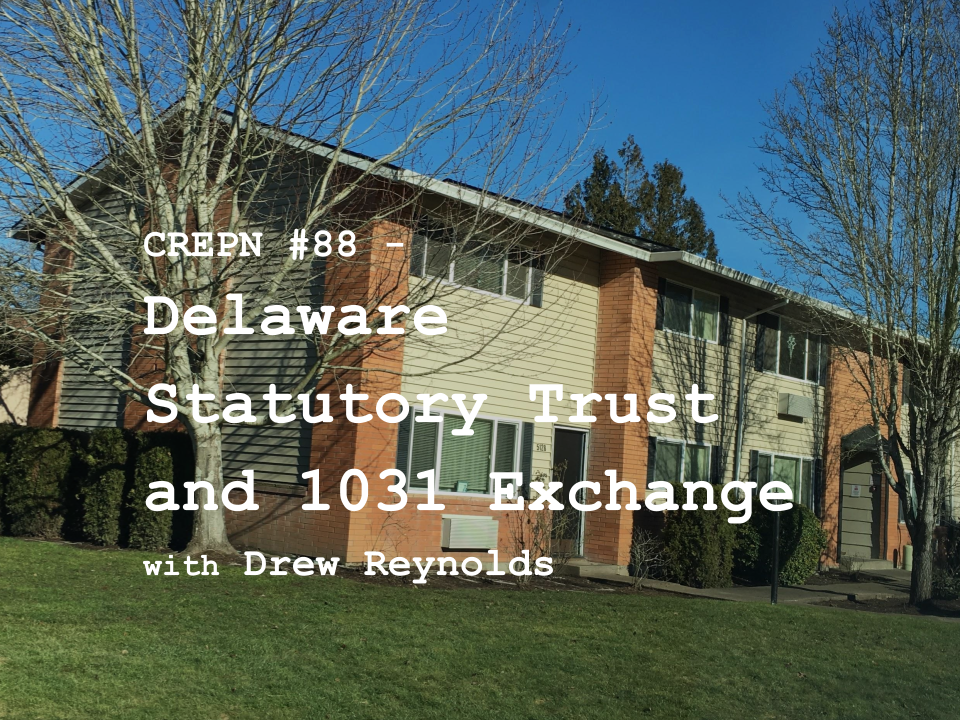
14 Apr CREPN #88 – Delaware Statutory Trust and 1031 Exchange with Drew Reynolds
Posted at 07:00h
in Podcast
What is a Delaware Statutory Trust?
Download a summary Delaware Statutory Trust FREE
Real estate investors focus so much time and effort on getting into the deal. Once they have a deal, it’s all about creating cash flow, net operating income, and profit at a future sale. [x_audio_embed][/x_audio_embed] For the investor who has held a property for twenty years and depreciated it to near zero, a conversation with your accountant can be shocking when you realize the potential tax consequence of selling. If this is you, the depreciation recapture and capital gains tax can leave you feeling trapped and asking yourself, “How can I keep my profits?” Most real estate investors have heard of the 1031 Exchange. In its simplest terms, the 1031 Exchange allows you to defer paying taxes from the sale of an investment property if you abide by the 1031 Exchange requirements including:- Same taxpayer provision: the entity purchasing the new property must be the same entity that sold the property creating the tax event
- Balance your trade: the purchase price of the new property must be of greater value, with equal or greater debt than the property that was sold.
- Qualified intermediary: profits from sale cannot be received by you, and must be transferred from the old property to the new property through a neutral third party.
- Timeline: In 45 days the replacement property must be identified and the transaction must close within 180 days.
- Participating investor count can not exceed 35.
- The requirement of unanimous consent.
- The Investor cannot be active in the decision making and must remain passive.
- The DST cannot invest in new development and must invest in a stable investment with financing already in place.
- An investor holds a “beneficial interest” in the Delaware Statutory Trust, which provides all of the traditional benefits of a 1031 Exchange, including the allowance for subsequent 1031 Exchange.

